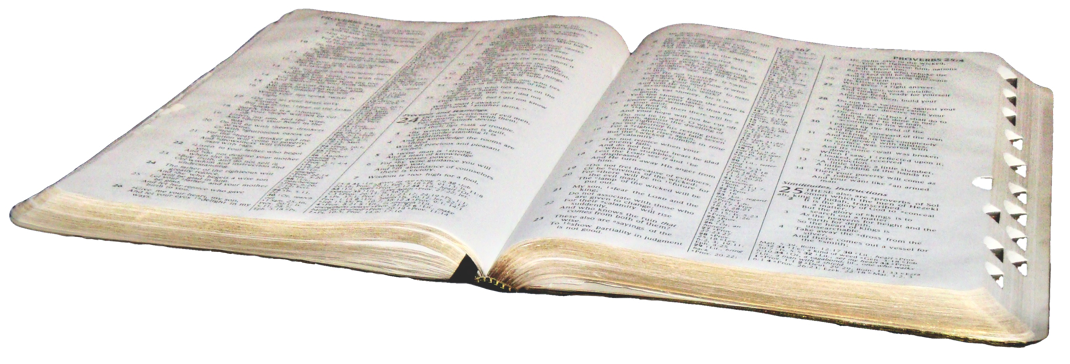
Bein' a Berean
…outside the box but inside God's Word...



We would have a much clearer understanding of the scriptures if we gave attention to the intended audience. For example, God’s command to marry a prostitute, as found in Hosea, would not everyone quickly point out that this command was given only to Hosea and as a prophetic gesture concerning Israel? Or how many men would line up to get circumcised to fulfil God's command:
And God said to Abraham: "...Every male child among you shall be circumcised." Genesis 17:9-10 (NKJV)
Is that not also the case with Moses’ law? Was that not given specifically to Israel? Were the Gentiles invited to its presentment or asked to assert with Israel that "All the words which the LORD has spoken we will do!" (Exodus 24:3 NASB unless noted)?
Clarity as to the intended audience is primary in understanding the message—especially as it pertains to doctrine and End Times teaching. I'd like to propose a framework to help identify the audience. It would seem reasonable to first look at divisions already provided by scriptures, namely the three main covenants or contracts—the Abrahamic, the Mosaic and the Messianic—not from the usual perspectives of Faith, Law, and Grace respectively, but as they relate to God—inclusive versus exclusive.
Jesus' words affirm the covenant relationship God had with Israel alone in his response to the pleas of the Canaanite woman—a Gentile:
Matthew 15:22-24 And a Canaanite woman from that region came out and began to cry out, saying, "Have mercy on me, Lord, Son of David; my daughter is cruelly demon-possessed." But He did not answer her a word. And His disciples came and implored Him, saying, "Send her away, because she keeps shouting at us." But He answered and said, "I was sent only to the lost sheep of the house of Israel."
That God had obligated himself, by covenant, to Israel is clear in Jesus' response to this woman:
Matthew 15:26 "And He answered and said, "It is not good [kalos] to take the children's bread and throw it to the dogs."
kalos (καλός, 2570), ...has also the ethical meaning of what is “fair, right, honorable, of such conduct as deserves esteem” (Vine's Complete Expository Dictionary)
Even though Jesus was sent only to Israel, God always responds to faith, as evidenced in her response, and granted her request.
In Matthew 10:5-6 Jesus instructed his disciples saying, "Do not go in the way of the Gentiles, and do not enter any city of the Samaritans; but rather go to the lost sheep of the house of Israel."
Jesus was sent only to those of the house of Israel. This fact should be the basis for interpreting the primary focus of his words in the gospels and judiciously in the rest of the scriptures.
The one we refer to as the Abrahamic Covenant (Contract), also called the covenant of circumcision,1 begins with Abram:
Genesis 17:7 "I will establish My covenant between Me and you and your descendants after you throughout their generations for an everlasting covenant, to be God to you and to your descendants after you."
Genesis 17:19 But God said, "No, but Sarah your wife will bear you a son, and you shall call his name Isaac; and I will establish My covenant with him for an everlasting covenant for his descendants after him."
The language here is clear—the covenant is with Isaac's and later with Jacob's descendants, to the exclusion of all other peoples.
Before this covenant, God treated the people of the earth as one. Following this event, the children of Abram (later renamed Abraham) were (s)elected by God and separated from those known as the Gentiles. The only requirement placed upon Abram and his descendants was that they be circumcised2 and later obey the Torah.
By this act, God elected to make an everlasting covenant of relationship with Abram and his descendants through Isaac and Jacob. The Gentiles enjoyed none of the benefits of this covenant unless they joined themselves to Israel (as proselytes) through circumcision or marriage.
The covenant was, in essence, "If Israel will worship no other gods but ME, then I will favour no other people but Israel. "
Exodus 6:7 "Then I will take you for My people, and I will be your God;"
Jeremiah 31:31 "Behold, days are coming," declares the LORD, "when I will make a new covenant with the house of Israel and with the house of Judah,…”
This new Messianic Covenant, it seems, was intended to be with true Israel. However, Paul tells us that it was because Israel rejected Jesus that God's favour for salvation was made inclusive of the Gentiles—for a time. This was the mystery hidden in the Old Testament.
Romans 11:11 But by their transgression salvation has come to the Gentiles…
Matthew 22:2-3 The kingdom of heaven may be compared to a king who gave a wedding feast for his son. And he sent out his slaves to call those who had been invited to the wedding feast, and they were unwilling to come.
Those who were selected rejected the offer. This rejection was evidenced in their words at the crucifixion:
John 19:15 The chief priests answered, "We have no king but Caesar."
Perhaps during the difficulties of the Great Tribulation, these words will be rescinded and replaced with, "Jesus is Lord"
As a result of Israel’s rejection, any individual, be they Gentile or Israeli, is invited to participate in the new covenant:
John 1:11 He came to His own, and those who were His own did not receive Him.
Matthew 22:8-9 "Then he said to his slaves, 'The wedding is ready, but those who were invited were not worthy. 'Go therefore to the main highways, and as many as you find there, invite to the wedding feast.'
Initially, Israel was elected to participate. Israel's rejection became the Gentiles' invitation to whoever would accept it.
From Paul’s writings, we learn that Israel's rejection of Christ and the corresponding new covenant/contract is a temporary event. When the fullness of the Gentiles has come in, then Israel will have a change of heart, accept Yeshua as the Messiah, and receive salvation. The new everlasting covenant will be established with Israel at that time. Remember, that new covenant, too, was intended to be exclusive to Israel as an addendum to the everlasting nature of the original covenant.
Romans 11:25 For I do not want you, brethren, to be uninformed of this mystery—so that you will not be wise in your own estimation-- that a partial hardening has happened to Israel until the fullness of the Gentiles has come in;
Old Testament prophecy tells of a return of the children of Israel to their land by God’s doing. This, too, indicates that God is not finished with the Israelites. Consequently, we have four distinct people groups to examine.
Gentiles, Christian Gentiles, Messianic Israelites, and Jews (those of Israel who continue to reject Jesus) now exist as distinct people groups. Of these, Gentiles and Jews, unless they accept God’s invitation to salvation, remain outside of God’s favour.
While it is true that, in Christ, there is "neither Jew nor Greek, there is neither slave nor free man, there is neither male nor female" (Galatians 3:28), this does not mean that there are no Jews and no Greeks (Gentiles), nor that there are no males or females. This does not mean that husbands are no longer the head, and wives are no longer expected to give themselves in submission to their husbands. Certainly, there are Jews and Greeks, and male and female; there is, however, no advantage of one over the other—in Christ.
I separate Messianic Israelites and Christian Gentiles because, in Acts 15, a distinction was made, and remains, in the requirements or expectations placed on these two Messianic groups.
Acts 15:23-28 “…and they sent this letter by them, "The apostles and the brethren who are elders, to the brethren in Antioch and Syria and Cilicia who are from the Gentiles, greetings…. For it seemed good to the Holy Spirit and to us to lay upon [Gentile Christians] no greater burden than these essentials…”
Via the Holy Spirit, the Christian Gentiles were given, then and now, a different standard than that expected of the Messianic Israelites—represented by the issue of circumcision. This different standard seems to be similar to the seven Noahide laws that are considered binding on the Gentiles by Orthodox Jews today.
Supporting the differentiation between Messianic Israelites and Christian Gentiles today is Paul's act, in Acts 16, of circumcising Timothy because his mother was Jewish, making him Jewish. In Acts 21, Paul affirms his adherence to Jewish laws and customs and differentiates that from what is expected of the Gentile believers. This occurs after the Jerusalem Conference. Messianic Israelites, in Paul's understanding, were required to follow the laws of Moses but not so of the Christian Gentiles.
There remains a distinction between these two groups, one which I believe will be finally removed when the body of Christ—the called out ones i.e. Christian Gentiles—are united as in marriage to the bride of Christ—the elected ones, i.e. Messianic Israelites (see The Church is Not the Bride).
That God is not finished with Israel is obvious from the words of the archangel Gabriel to Daniel:
Daniel 9:24 "Seventy weeks have been decreed for your people and your holy city, to finish the transgression, to make an end of sin, to make atonement for iniquity, to bring in everlasting righteousness, to seal up vision and prophecy and to anoint the most holy place."
The end times clock was decreed to focus on Daniel’s people—Israel. Most accept that 69 weeks of years (a week symbolizing 7 years) were completed on exactly the day when Jesus entered Jerusalem on the foal of a donkey. Seven days later, the crucifixion, as Israel’s rejection of Jesus, initiated the “time of the Gentiles.”4 The clock stopped after 69 weeks of years. The 70th week has yet to be completed.
Romans 11:25 "a partial hardening has happened to Israel until the fullness of the Gentiles has come in"
When that "partial hardening" is lifted, the clock will resume its countdown to complete the 70th week of years, also known as the time of Jacob’s trouble5 and the Great Tribulation. That last week of seven years, as described in Revelation, must, of necessity, focus on Daniel’s people—the true children of Israel—not on what we call the “church” today.
Jeremiah 30:7 Alas! for that day is great, so that none is like it: it is even the time of Jacob's trouble; but he shall be saved out of it.
The beginning of the “time of Jacob’s trouble” also marks the end of the time of the Gentiles' favour. In the midst of it, a significant portion (Paul uses the word "all") of true Israel, as a nation or people group, will turn to recognize and receive Jesus as their Messiah and then re-enter an exclusive relationship with God.
This last week of seven years is Jacob’s nightmare, the focus being on Jacob’s offspring. For this reason, I read Revelation 4-18 as describing events which involve Messianic Israelites and therefore references therein to ‘the saints’ and ‘the elect’ as applying only to Israelites who have (re)turned to Christ.
I suspect that the end of the time of the Gentiles is the beginning of the time of Jacob's trouble and that the Christian Gentiles, who had until this time enjoyed God’s favour, will be “caught up”6 or raptured to avoid a contractual difficulty with God’s promise to give favour to Israelites exclusive of all others. By that, I mean that if the new covenant requires that God give exclusive favour to Messianic Israelites, then he would be obligated to abandon the Christian Gentiles that remain on earth. Removing all Christian Gentiles from the earth via the rapture would remove this conflict and breach of contract. Read my article, "Rapture with Purpose."
At the end of the Great Tribulation, Jesus will fulfil his promise to the disciples, Messianic Israelites to come again, to receive them to be in the place he has prepared for them:
John 14:1-3 “...I go to prepare a place for you. And if I go and prepare a place for you, I will come again, and receive you unto myself; that where I am, there ye may be also.”
That place is suspect is the New Jerusalem which comes down out of heaven with Him in it.
Revelation 21:9-11 “Come here, I will show you the bride, the wife of the Lamb." And he carried me away in the Spirit to a great and high mountain, and showed me the holy city, Jerusalem, coming down out of heaven from God, having the glory of God.”
Revelation 22:3 “and the throne of God and of the Lamb will be in it,”
Revelation 22:16-17 “I, Jesus, have sent My angel to testify to you these things for the churches…” The Spirit and the bride say, "Come."
The Spirit and the bride say to the churches, “Come.” The bride is distinct from the "churches." The final union—Messianic Jew and Christian Gentile—takes place. That Israel is the bride of Christ is discussed in the article "The Church is Not the Bride".
This then becomes the loose framework (subject to modification) in which and from which we would examine, interpret, and understand scriptures. Scriptures should be read and understood from the perspective that:
*The one exception might be where, in the gospels, Jesus is speaking to His disciples. In that case, his words would apply even to those "other sheep, which are not of this fold." (John 10:16)
What does it mean, or how does that affect our reading of scriptures?
While it is a given that "All Scripture is inspired by God and profitable for teaching, for reproof, for correction, for training in righteousness" (2 Tim 3:16), it must be "accurately" handled (2 Tim 2:25).
References to the elect and the saints in Revelation 4 to 18 should be read as being written to Messianic Israelites, not Christian Gentiles. (read my article Invitation or Election).
Jesus' parables and descriptions of end-time events should be read as primarily focused on the Israelites. In this light, the wheat and tares, sheep and goats, wise and foolish virgins, etc., can be properly understood.
1 Acts 7:8
2 Genesis 17:11
3 Acts 11:26
4 Luke 21:24
5 Jeremiah 30:7
6 1 Thessalonians 4:17


This website makes use of cookies. Please see our privacy policy for details.